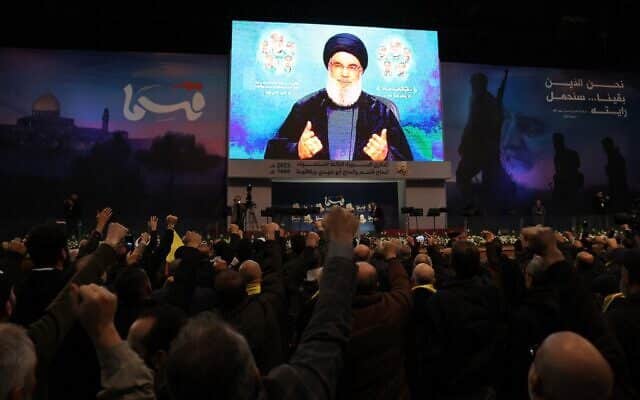Navigating the Tumultuous Waters of the Lebanese Refugee Crisis.
In the realm of international politics, Lebanon has surfaced into the limelight, owing to a bold proclamation by Hassan Nasrallah, the leader of Hezbollah, a staunch pro-Iran terror group. His recent address illuminated a perspective on the sensitive matter of Syrian migration through Lebanon, sparking vigorous debates and eliciting varied reactions from the global community. As Lebanon grapples with an intensified influx of Syrians crossing its border, Nasrallah has proposed a controversial solution: ceasing the prevention of Syrians’ maritime passage to the European Union.
This significant uptick in migration from Syria, motivated by citizens endeavouring to evade the hostile clutches of the Assad regime and circumvent a deteriorating Syrian economic landscape, has thrown Lebanon into a precarious situation. The Lebanese military has thus beseeched for augmented resources and manpower to safeguard the expansive 394-kilometer border with Syria, a feat currently deemed unattainable given the present circumstances.
Nasrallah’s assertion hinges on the claim that the United States, through its rigorous imposition of sanctions epitomised by the Caesar Act, is instrumental in the destabilisation of the Syrian economy and, consequently, the displacement of Syrian refugees. He postulates that relieving these sanctions and allowing investments to flow into Syria would catalyse the return of countless Syrians to their homeland.
However, beneath the macrocosmic lens of international politics, the escalating Syrian refugee crisis has catalysed a crescendo of xenophobia and frustration amongst the Lebanese populace and political entities alike. A palpable tension percolates through the nation as nearly 1.6 million Syrian refugees seek solace on Lebanese soil, eliciting a complex maelstrom of socio-economic and political quandaries amidst an already dire Lebanese economic crisis, which has submerged approximately 80% of its citizens into the abyss of poverty since its inception in 2019.
The fractious relationship between the Lebanese and Syrian refugees is increasingly evident. Several prominent Lebanese political factions have voiced a unanimous plea for the return of Syrian refugees to their homeland. This has been accompanied by the execution of numerous deportations by the Lebanese state since April, alongside an upsurge in anti-Syrian demonstrations within the capital, Beirut.
Meanwhile, humanitarian organisations adamantly underscore the inhospitable conditions within Syria, highlighting the palpable dangers that await returning refugees, including potential torture, forced disappearances, and even fatal encounters with security services. This situation places the involved parties in a moral and political quandary, with seemingly no straightforward resolution in sight.
The disconcerting crisis transcends Lebanese borders, permeating into the European Union, where member states exhibit increasing frustration towards the burgeoning numbers of Syrians journeying by sea to seek asylum. A notable example was witnessed on 15th September when Cypriot Interior Minister, Constantinos Ioannou, approached the EU parliament, imploring them to reassess the security situation within Syria. This was with a view to initiating the return of Syrian asylum seekers, whilst concurrently soliciting additional financial assistance for Lebanon, which he defined as a crucial “barrier” preventing further refugees from infiltrating Europe.
This complex, multi-faceted crisis intertwines geopolitical, humanitarian, and socio-economic threads, creating a delicate tapestry that requires a meticulously balanced approach. While Nasrallah’s provocative strategy of essentially employing the refugee crisis as a bargaining chip with Europe raises ethical and practical questions, it undoubtedly propels the issue further into the global arena, necessitating urgent, collective contemplation and action.
As Lebanon navigates through these tumultuous waters, the coming months will be pivotal, not only in shaping the nation’s socio-political landscape but also in defining the broader international response to a crisis that continues to unfurl amidst an already chaotic global stage.
Image Credit: Anwar AMRO / AFP



















